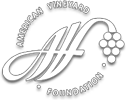The USDA Agricultural Research Service (USDA-ARS) grape rootstock improvement program in Geneva, NY has undergone some significant changes in the past two years as a result of the resignation of Dr. Peter Cousins from his ARS rootstock breeder position and the abolishment of the vacated rootstock breeder position by ARS due to the federal budget cuts. However, a consistent effort has been made to ensure that promising rootstock selections from previous years of breeding effort are maintained and carried through the evaluation process. To meet this challenge, a multi-discipline and –institution cooperative research team has been formed under the encouragement and endorsement of the California grape industry. Matthew Fidelibus of University of California-Kearney Agricultural Research and Extension Center (UC-KARE) has lead the effort for evaluation of horticultural characteristics and graft performance of the rootstock selections generated from the Geneva rootstock breeding program. Gan-Yuan Zhong of the USDA-ARS Grape Genetics Research Unit (GGRU) in Geneva, NY, on the other hand, has lead the effort for creating rootstock breeding populations and evaluating these populations and advanced selections for root-knot nematode (RKN) resistance and propagation ability.
By forming such a team, we have effectively leveraged our complementary expertise and capabilities to meet the overall project objectives in a timely and efficient manner. The new team has been in operation since 2013. During the 2014-2015 funding year, we maintained several hundreds of resistant rootstock selections/mothervines at the UC KARE in Parlier, CA. With the help of nursery representatives, Andy Walker of UC-Davis, and others, we evaluated the horticultural characteristics of these rootstock mothervines and identified 30 of them for further evaluation. We evaluated the rooting ability and RKN resistance of the 30 selections and identified 6 with desirable rooting ability and resistance to RKNs. These 6 selections will be further evaluated in 2015-2016. During 2014-2015, we have also maintained about 200 rootstock mothervines in the USDA-ARS rootstock breeding program in Geneva, NY. These mothervines will need to be further evaluated and transferred to grow in UC KARE in Parlier, CA. We also screened a population for nematode resistance marker development. We continued the effort in evaluating 22 selections, grafted to Syrah, in replicated rootstock trials at the UC-KARE. Matador, Minotaur, and Kingfisher rootstocks, released by this USDA ARS grape rootstock breeding program in 2010, are being distributed by Foundation Plant Services and planted by California nurseries.

